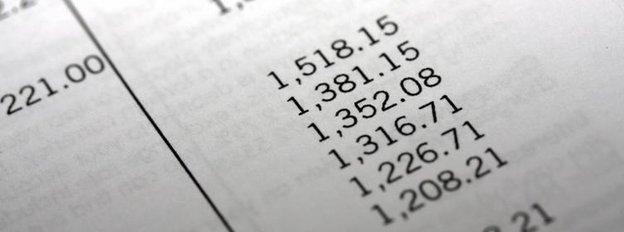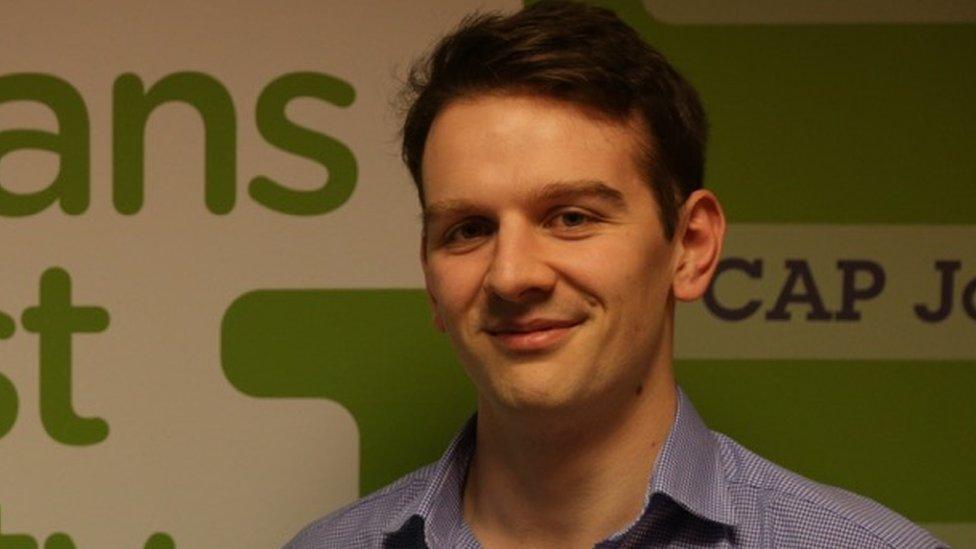The only truly free bank account
- Published

People in financial trouble can choose new fee-free current accounts - but banks still have the right to move them onto accounts with charges.
A basic bank account allows customers to use cash machines and direct debits but blocks them from overdraft fees.
All the major High Street names have offered these accounts since January after a deal was thrashed out between the Treasury and the industry.
But one charity says bank staff are not all aware of the accounts.
Debt counselling service Christians Against Poverty (CAP) said that staff were inadvertently directing applicants with a chequered financial history to regular, fee-charging current accounts.
The customers' applications are then inevitably rejected because they fail the credit checks.
"It can be upsetting for people who are already dealing with debt," said Daniel Kelly, creditor relations analyst at CAP. "Many have had a negative relationship with banks for quite some time."


'I tried bank after bank'
When Lee, from Bolton, lost his job he started to get into financial difficulty. He had to move out of his home because he could not afford the rent and faced years of debt.
The 35-year-old was advised by CAP to open a basic bank account and they provided him with a letter explaining his situation to bank staff and outlining the account he needed to open.
"There are about 10 banks in the centre of Bolton. I went from one bank to another. I kept on getting turned away. I felt like giving up, wondering what was the point," he said.
Initially, he was told he did not have the correct paperwork but, after that, he encountered confusion from bank staff.
"About three or four of them looked at me and asked me what a basic bank account was," he said.
In January, after three months of trying, he went into a branch of Barclays and a member of staff opened a basic bank account for him virtually on the spot.
He said that having the account was helping him to get back on his feet financially.

Features

Daniel Kelly says there are still concerns over staff awareness
A basic bank account is aimed at people who are unable to open a regular current account, or switch accounts, owing to their poor credit rating. Customers in financial difficulty who already hold a current account, but need a further account to manage their financial affairs are also eligible.
A basic bank account includes:
Access to banking over the counter
Use of cash machines on the Link network
Direct debits and standing orders
Payment card payments, including online
The account has no option of an arranged overdraft, and there are no fees for a failed payment when the account is short of funds. Previously they might have paid up to £35 per failed payment.
Mr Kelly said it was "crucial" for those who had faced financial difficulty to have a payment card and direct debit facility in order to access the best deals found online. For example, the best gas and electricity tariffs are only available to those who could pay via direct debit.
A report by the Financial Inclusion Commission, external, published in March 2015, found that those without an account faced paying an extra £1,300 a year for financial services.
Many people in debt also find it useful to open a separate basic bank account for day-to-day expenses, rather than stick with an account when the bank can take a chunk of any fresh income for unpaid charges.
ID issues
The banking industry signed an agreement, external with the Treasury in late 2014 that gave them a year to set up basic bank accounts.
Mr Kelly said that the new basic accounts launched by the deadline were "encouraging", although "it was a shame that the banks had to be forced into it".
He still raised concerns that some people in debt, who were forced to move between temporary accommodation and did not have a passport, found it difficult to product the paperwork and ID required to open an account.
The agreement also gives the banks the power to move customers from a basic bank account to a regular, fee-charging current account if they believe the customer's financial circumstances have improved sufficiently.
The bank must give the customer two months' notice in writing, explaining why it intends to shift them to the new account.
Other providers have separate arrangements to the agreement. For example, Virgin Money launched its version of a basic bank account in 2014.
The British Bankers' Association, which represents the major UK banks, said: "The basic bank account has recently been substantially redesigned to deliver better service for customers and builds on the significant progress made by the industry on financial inclusion in recent years.
"More people than ever before can now access banking services without any fees.
"High street banks are committed to delivering the basic bank account agreement in full, including the obligations to ensure visibility and access, and they take this responsibility very seriously."
Tomorrow: Why consumers get a raw deal from internet banking